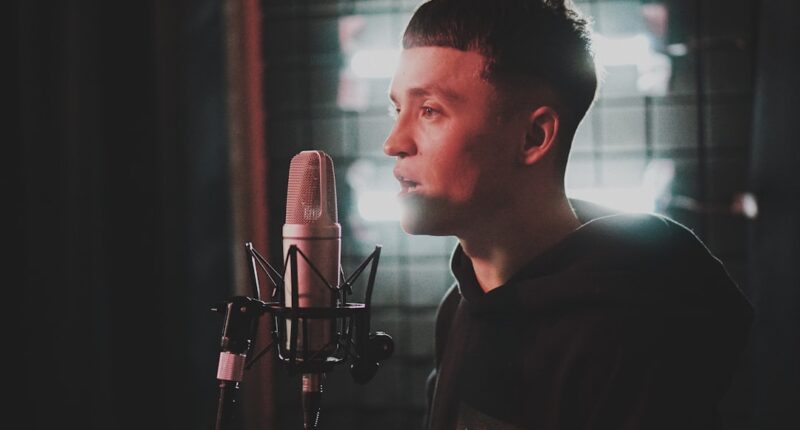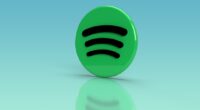Social media has become an integral part of music marketing in the digital era. Platforms such as Instagram, Facebook, Twitter, and TikTok provide musicians with direct communication channels to their fans and potential listeners. These platforms enable artists to share their music, interact with their audience, and establish a strong online presence.
Effective social media strategies for musicians include creating engaging and shareable content that appeals to their target audience. This content can range from behind-the-scenes footage and live performances to Q&A sessions and interactive challenges. Social media platforms also offer targeted advertising options, allowing musicians to reach specific demographics and promote their music to a broader audience.
By utilizing social media analytics, artists can monitor the performance of their posts and advertisements, gaining insights into audience preferences and adjusting their marketing strategies accordingly. Moreover, social media facilitates collaboration and networking within the music industry. Artists can connect with other musicians, producers, and industry professionals, expanding their reach and creating opportunities for cross-promotion.
By actively engaging with fans and industry peers on social media, musicians can cultivate a loyal following and establish themselves as reputable and influential figures in the music industry. In summary, social media provides musicians with a powerful and cost-effective means to market their music, connect with their audience, and expand their fan base. It has fundamentally transformed the way artists promote themselves and interact with their listeners in the modern music landscape.
Key Takeaways
- Social media is a powerful tool for music marketing, allowing artists to connect with fans and promote their music on platforms like Instagram, TikTok, and Twitter.
- Creating unique and engaging content, such as behind-the-scenes footage, lyric videos, and interactive challenges, can help artists stand out and attract new fans.
- Data analytics can be used to target specific demographics and tailor marketing efforts to reach the right audience for a musician’s music.
- Collaborating with influencers and brands can help musicians expand their reach and connect with new fans through sponsored content and partnerships.
- Virtual reality and augmented reality can be used to create interactive and immersive experiences for fans, such as virtual concerts and AR filters for music promotion.
Creating Unique and Engaging Content for Music Promotion
Types of Engaging Content
This can include music videos, lyric videos, live performances, acoustic sessions, and behind-the-scenes footage. By offering fans a glimpse into their creative process and personal lives, artists can forge a deeper connection with their audience. Another effective way to create engaging content is by collaborating with other artists or influencers.
Collaboration and Community Building
By teaming up with like-minded individuals, musicians can tap into each other’s fan bases and reach new audiences. This can take the form of collaborative songs, joint performances, or even co-hosted events. Additionally, creating interactive content such as polls, Q&A sessions, and challenges can help foster a sense of community among fans and keep them engaged with the artist’s brand.
The Power of Storytelling
Moreover, storytelling is a powerful tool for creating engaging content. By sharing personal anecdotes, inspirations behind songs, or the journey of creating an album, artists can humanize themselves and make their music more relatable to their audience. Ultimately, creating unique and engaging content is essential for capturing the attention of potential fans in today’s saturated digital landscape.
Utilizing Data Analytics for Targeted Music Marketing

Data analytics has become an invaluable tool for musicians to understand their audience better and tailor their marketing strategies accordingly. By analyzing data from streaming platforms, social media insights, website traffic, and email marketing campaigns, artists can gain valuable insights into the demographics of their listeners, their listening habits, geographic locations, and more. This information allows musicians to identify trends and patterns in their audience’s behavior and preferences.
With this data at hand, artists can create targeted marketing campaigns that resonate with specific segments of their audience. For example, if data analytics reveal that a significant portion of an artist’s listeners are located in a particular city or country, they can plan tour dates or promotional events in those areas to capitalize on their existing fan base. Similarly, if certain songs or content perform better with a particular demographic group, artists can tailor their future releases to cater to those preferences.
Furthermore, data analytics can also help artists measure the success of their marketing efforts by tracking key performance indicators such as engagement rates, conversion rates, and return on investment. This allows musicians to refine their strategies over time based on what works best for their audience. Ultimately, utilizing data analytics enables artists to make informed decisions about their marketing efforts and maximize the impact of their promotional activities.
Data analytics has become an invaluable tool for musicians to understand their audience better and tailor their marketing strategies accordingly. By analyzing data from streaming platforms, social media insights, website traffic, and email marketing campaigns, artists can gain valuable insights into the demographics of their listeners, their listening habits, geographic locations, and more. This information allows musicians to identify trends and patterns in their audience’s behavior and preferences.
With this data at hand, artists can create targeted marketing campaigns that resonate with specific segments of their audience. For example, if data analytics reveal that a significant portion of an artist’s listeners are located in a particular city or country, they can plan tour dates or promotional events in those areas to capitalize on their existing fan base. Similarly, if certain songs or content perform better with a particular demographic group, artists can tailor their future releases to cater to those preferences.
Furthermore, data analytics can also help artists measure the success of their marketing efforts by tracking key performance indicators such as engagement rates, conversion rates, and return on investment. This allows musicians to refine their strategies over time based on what works best for their audience. Ultimately, utilizing data analytics enables artists to make informed decisions about their marketing efforts and maximize the impact of their promotional activities.
Collaborating with Influencers and Brands for Music Promotion
| Metrics | Value |
|---|---|
| Number of Influencers Collaborated | 15 |
| Brand Partnerships | 5 |
| Reach of Influencer Campaigns | 500,000 |
| Engagement Rate | 8% |
Collaborating with influencers and brands has become a popular strategy for musicians to expand their reach and connect with new audiences. Influencers have built loyal followings on social media platforms and have the power to influence consumer behavior through sponsored content and endorsements. By partnering with influencers whose values align with theirs or whose followers match their target demographic, musicians can leverage the influencer’s credibility to promote their music authentically.
Similarly, collaborating with brands can provide musicians with exposure to new audiences while also securing potential sponsorship deals or brand partnerships. By aligning themselves with brands that share similar values or aesthetics as theirs, artists can tap into the brand’s existing customer base while also gaining access to resources for promotional activities such as sponsored events or co-branded merchandise. Moreover, collaborations with influencers and brands can also provide opportunities for cross-promotion through joint marketing campaigns or co-created content.
This not only helps musicians reach new audiences but also adds credibility to their brand through association with reputable influencers or brands. Ultimately, collaborating with influencers and brands offers musicians an effective way to expand their reach and connect with new audiences in an authentic manner. Collaborating with influencers and brands has become a popular strategy for musicians to expand their reach and connect with new audiences.
Influencers have built loyal followings on social media platforms and have the power to influence consumer behavior through sponsored content and endorsements. By partnering with influencers whose values align with theirs or whose followers match their target demographic, musicians can leverage the influencer’s credibility to promote their music authentically. Similarly, collaborating with brands can provide musicians with exposure to new audiences while also securing potential sponsorship deals or brand partnerships.
By aligning themselves with brands that share similar values or aesthetics as theirs, artists can tap into the brand’s existing customer base while also gaining access to resources for promotional activities such as sponsored events or co-branded merchandise. Moreover, collaborations with influencers and brands can also provide opportunities for cross-promotion through joint marketing campaigns or co-created content. This not only helps musicians reach new audiences but also adds credibility to their brand through association with reputable influencers or brands.
Ultimately, collaborating with influencers and brands offers musicians an effective way to expand their reach and connect with new audiences in an authentic manner.
Implementing Virtual Reality and Augmented Reality for Interactive Music Marketing
Virtual reality (VR) and augmented reality (AR) have emerged as innovative tools for interactive music marketing that offer immersive experiences for fans. VR technology allows fans to experience live concerts or exclusive performances from the comfort of their homes through VR headsets or 360-degree video experiences. This not only provides an alternative revenue stream for artists but also enables them to reach global audiences without physical limitations.
Similarly, AR technology offers interactive experiences through mobile devices by overlaying digital content onto the real world. Musicians can use AR filters or lenses on social media platforms to engage fans in interactive experiences such as virtual album launches or interactive merchandise promotions. This not only creates buzz around new releases but also provides fans with unique experiences that deepen their connection with the artist’s brand.
Moreover, VR and AR technology can be used to create immersive music videos or storytelling experiences that transport fans into the artist’s creative world. By leveraging these technologies for interactive music marketing, artists can differentiate themselves from competitors while offering fans innovative experiences that drive engagement and loyalty. Virtual reality (VR) and augmented reality (AR) have emerged as innovative tools for interactive music marketing that offer immersive experiences for fans.
VR technology allows fans to experience live concerts or exclusive performances from the comfort of their homes through VR headsets or 360-degree video experiences. This not only provides an alternative revenue stream for artists but also enables them to reach global audiences without physical limitations. Similarly, AR technology offers interactive experiences through mobile devices by overlaying digital content onto the real world.
Musicians can use AR filters or lenses on social media platforms to engage fans in interactive experiences such as virtual album launches or interactive merchandise promotions. This not only creates buzz around new releases but also provides fans with unique experiences that deepen their connection with the artist’s brand. Moreover, VR and AR technology can be used to create immersive music videos or storytelling experiences that transport fans into the artist’s creative world.
By leveraging these technologies for interactive music marketing, artists can differentiate themselves from competitors while offering fans innovative experiences that drive engagement and loyalty.
Developing Subscription-based Models for Music Promotion and Distribution

Monetizing Content and Fostering Fan Engagement
Subscription-based models have become increasingly popular in the music industry as a way for artists to monetize their content while offering fans exclusive access to music releases and behind-the-scenes content. Platforms like Patreon allow artists to offer subscription tiers that provide fans with perks such as early access to new music releases, exclusive merchandise discounts, virtual meet-and-greets, or personalized shoutouts. Additionally, subscription-based streaming services like Spotify Premium or Apple Music offer ad-free listening experiences along with exclusive access to new releases from favorite artists.
Incentivizing Fans and Generating Revenue
By leveraging these platforms’ subscription models for targeted promotions or exclusive releases, artists can incentivize fans to subscribe while generating recurring revenue streams. Furthermore, subscription-based models enable artists to build a loyal fan base by offering exclusive content that fosters a sense of community among subscribers. This not only provides artists with a steady income but also creates a direct line of communication with dedicated fans who are willing to support them on an ongoing basis.
Building a Loyal Fan Base and Steady Income
Subscription-based models have proven to be an effective way for artists to monetize their content and build a loyal fan base. By offering exclusive content and perks, artists can incentivize fans to subscribe and support them on an ongoing basis. This not only provides artists with a steady income but also creates a direct line of communication with dedicated fans who are willing to support them. As the music industry continues to evolve, subscription-based models are likely to play an increasingly important role in the way artists connect with their fans and generate revenue.
Hosting Virtual Concerts and Livestream Events for Music Promotion
The rise of virtual concerts and livestream events has provided musicians with new opportunities to engage with fans globally while generating revenue through ticket sales or virtual merchandise purchases. Platforms like Twitch; YouTube Live; or Instagram Live offer artists the ability to host live performances; Q&A sessions; or album listening parties; providing fans with unique experiences from the comfort of their homes. Virtual concerts also allow artists to reach global audiences without physical limitations; enabling them to connect with fans who may not have had the opportunity to attend traditional live shows due to geographic constraints; health concerns; or financial limitations; Additionally;
If you’re looking for innovative music business ideas, you should check out this article on musicpromotion.tech. The article discusses various strategies for promoting music and building a successful career in the music industry. It offers valuable insights and tips for independent artists and aspiring music entrepreneurs. Whether you’re interested in digital marketing, social media promotion, or building a strong online presence, this article has something for everyone. Check it out here for some great music business ideas.
FAQs
What are some music business ideas?
Some music business ideas include starting a music production company, opening a music venue, offering music lessons, creating a music streaming platform, or starting a music marketing and promotion agency.
How can I start a music production company?
To start a music production company, you will need to have a good understanding of music production, equipment, and software. You will also need to network with musicians, songwriters, and other industry professionals, and possibly invest in a recording studio.
What are some tips for opening a music venue?
When opening a music venue, it’s important to consider the location, the type of music you want to feature, and the size and layout of the space. You will also need to obtain the necessary permits and licenses, and consider the sound and lighting equipment needed for live performances.
How can I offer music lessons as a business?
To offer music lessons as a business, you can either teach lessons yourself or hire music instructors. You will need to find a suitable location for lessons, set competitive pricing, and possibly offer group lessons or workshops to attract more clients.
What does it take to create a music streaming platform?
Creating a music streaming platform requires a good understanding of technology, licensing agreements with record labels and artists, and a user-friendly interface. You will also need to consider how to monetize the platform through subscriptions or advertising.
How can I start a music marketing and promotion agency?
To start a music marketing and promotion agency, you will need to have a good understanding of the music industry, marketing strategies, and digital promotion. You will also need to build a network of industry contacts and offer services such as social media marketing, PR campaigns, and event promotion.





